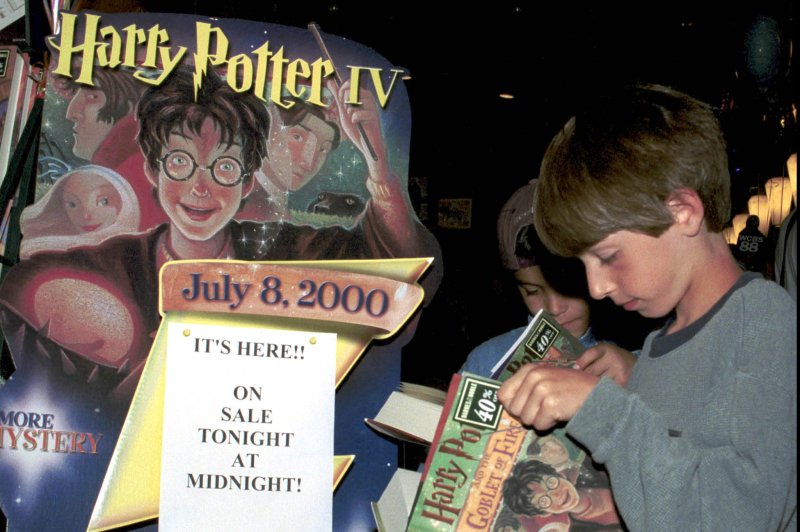Fans immediately begin to read after purchasing writer J.K. Rowling's new "Harry Potter and the Goblet of Fire" novel. Ezio Petersen/UPI |
License Photo
WASHINGTON, July 31 (UPI) -- Harry Potter didn't really solve racism, but new research suggests those who read the Harry Potter books and identify with the main character are more likely to empathize with immigrants, homosexuals and refugees. In other words, Harry Potter teaches tolerance -- kind of.
The study into Harry Potter's liberalizing effects -- published recently in the Journal of Applied Social Psychology -- is actually three studies in one: a study of how Italian fifth graders responded to the fantastical tales, an inquest into the reaction of Italian high schoolers, and finally a survey of how college students in the United Kingdom interpreted the best-selling series.
The first study found fifth graders in Italy who read Potter passages about prejudices showed "improved attitudes towards immigrants." The second study found a correlation between Italian high schoolers who identified with Harry and who held more tolerant views toward homosexuality.
The third study did not find a connection between Harry-lovers and tolerance, but did find a similar liberalizing effect when readers were made to interpret the book through alternative perspectives (like Voldemort's).
"Harry Potter book reading was positively associated with perspective taking toward refugees only among those less identified with Voldemort," the researchers wrote of the U.K. study in the final report. "Perspective taking, in turn, was associated with improved attitudes toward refugees."
The research piggybacks on previous studies which suggest literary fiction can reduce bigotry.
The study also lends credence to the self-proclaimed aims of the author.
"The Potter books in general are a prolonged argument for tolerance, a prolonged plea for an end to bigotry," said J.K. Rowling, author of the Harry Potter series. "And I think it's one of the reasons that some people don't like the books, but I think that's it's a very healthy message to pass on to younger people that you should question authority and you should not assume that the establishment or the press tells you all of the truth."















